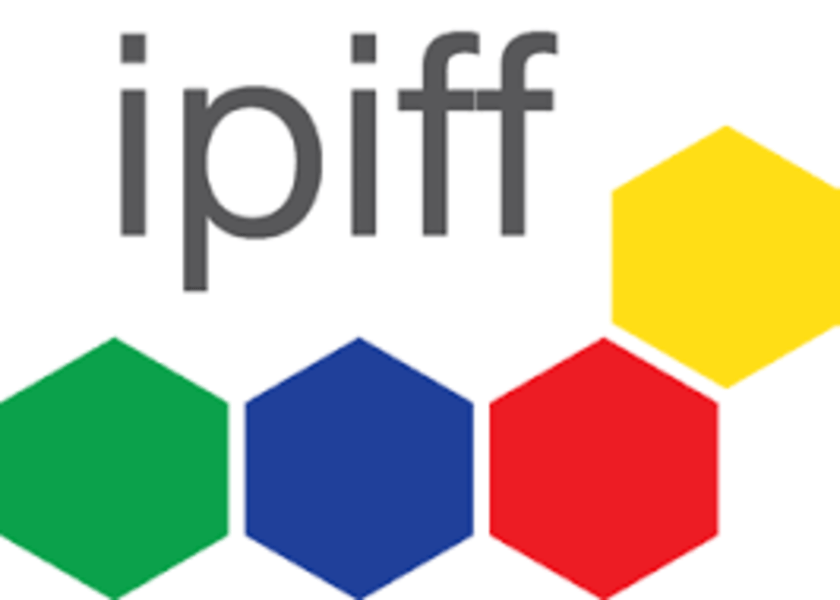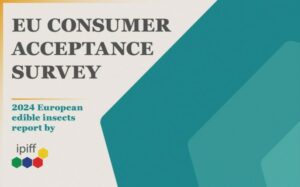Consumption of edible insects in Europe growing at an unprecedented rate
A new survey (available here) by the International Platform of Insects for Food and Feed (IPIFF) spotlights Europeans’ evolving eating habits and the growing interest in insect-enriched food products. Conducted by an accredited consultancy with input from renowned university professors, the survey sampled a total of 3,000 people from Europe’s largest markets: Germany, France, Italy, Sweden, Poland, and Belgium.
The EU Consumer Acceptance Survey on Edible Insects highlights that six out of ten Europeans who tried insect-enriched products rated the taste as “very good” with the age group 25-44 most prone to consuming the products. The survey questionnaire also aimed to identify food categories where insect-enriched products have gained popularity, while ascertaining the population demographic that the novel food industry can consider as early adopters.
“The EU Consumers Acceptance Survey provides an excellent opportunity to explore further the evolving eating habits of Europeans. The survey results emphasise the need for continuous research efforts to better understand and address the challenges concerning the acceptance of novel foods, such as those made with insect ingredients,” said Riccardo Valesi, PhD, Università degli Studi di Bergamo, who provided academic input to the survey.
According to the collated data, the key factors that drive changes in food habits are taste, market availability, health benefits, product pricing, environmental sustainability, as well as food origin. While the survey highlights Europeans’ growing taste for high-protein, vitamin-rich food products that require little resources to produce, it also suggests the need for additional agrifood research that could better inform policymakers at EU and national levels as to what the current map of food habits in Europe looks like.
Sports supplements, pasta, burgers
Sports supplements are amongst the most appealing insect-enriched food products, with 71% of the respondents saying they would consume them. Men who exercise regularly (76%) are more likely to integrate food products made with insect ingredients in their diets than women (65%) from the same group. An interesting survey finding is respondents’ preference for insect-enriched sports supplements due to their rich vitamin and mineral contents (71%) rather than the high amounts of protein in them (29%).
“Every industry around the globe is evolving, and the agrifood sector is no exception. The current study aims to provide an understanding of the changing eating habits of Europeans in the context of global phenomena such as climate change, while also addressing the increasing consumer interest in high-quality proteins from alternative food sources, such as those made with nutritious, high-protein insect ingredients,” said Steven Barbosa, IPIFF Deputy Secretary-General.
The survey highlights that the majority (above 70%) of those respondents in all countries who had tried food products made with insect ingredients rated the taste as either “good” or “very good”, with Belgians giving it the highest score, followed by the French. The determinant factor for trying insect-enriched foods is their taste with 71% of the respondents confirming this, while health benefits come in second place (47%), followed closely by price (45%).
The most popular whole insect Europeans have tried is the grasshopper (61%), while the yellow mealworm (45%) and the house cricket (42%) rank second and third respectively. The study also identifies a knowledge gap amongst end-consumers as to what insect-enriched product means: whole insects, insect powder or lipids, alluding to the need for wider-reaching consumer awareness campaigns.
Strong preference for EU products
The EU Consumer Acceptance Survey found that Europeans much prefer (88%) EU-originated novel foods as compared to imports from other geographies. This is confirmed by additional market data regarding the exponential growth of the European insect-farming sector, employing over 3,400 people across the continent as of December 2023. This number is expected to grow to over 30,000 by 2030, according to the Market Factsheet on the European Insect Farming sector published by IPIFF.
Taste & health benefits
While consumers do take into consideration environmental sustainability (25%) when purchasing insect-enriched foods, product taste (71%), health benefits (47%) and pricing (45%) pull the heaviest weight on their preferences. Word-of-mouth remains the most powerful marketing tool for driving awareness of alternative food products, while direct product marketing remains an area where progress can be made.
Background information
The European Food Safety Authority has so far published a total of seven positive opinions on insect-based food products, including whole insects, as well as powdered ingredients and lipids. Following the strict procedures for authorisation dependent on both the European Commission and the EU Member States, six insect species have been approved for market commercialisation in the EU.
Fastest-growing sector, strictest regulation
The global edible insect market is growing with at a compound annual growth rate (CAGR) of 47%. While the European Union has the strictest regulation for Novel Food products in the world, there are regulatory frameworks for edible insects in other parts of the world, including North and South America, Asia, and Australia. The largest insect-farming companies in the world are European, employing thousands across the continent.
If you have any questions about the report, please reach out to Steven Barbosa, IPIFF Deputy Secretary-General, steven.barbosa@ipiff.org or Eduard Tsvetanov, Communications Manager, eduard.tsvetanov@ipiff.org

